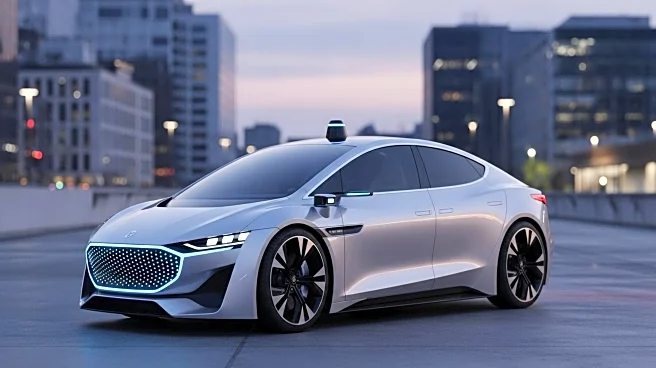What is the story about?
What's Happening?
Uber, in collaboration with the Chinese self-driving technology firm Momenta, plans to initiate testing of level 4 autonomous vehicles in Munich, Germany, next year. This move is part of Uber's strategy to expand its robotaxi services amid growing competition in the autonomous vehicle industry. Level 4 autonomous vehicles are capable of driving without human intervention in specific zones and conditions. Uber has been forming partnerships with various companies, including Waymo and WeRide, to strengthen its position in the robotaxi market. The commercialization of self-driving technology has faced challenges due to safety concerns and regulatory scrutiny.
Why It's Important?
The testing of autonomous vehicles by Uber and Momenta represents a significant step in the advancement of self-driving technology. Successful implementation could revolutionize the transportation industry, potentially reducing costs and increasing efficiency. However, the expansion of robotaxi services also raises questions about safety, regulatory compliance, and the impact on traditional taxi services. As Uber seeks to establish a foothold in the autonomous vehicle market, it could influence the future of urban mobility and transportation infrastructure in the U.S. and globally.
What's Next?
The upcoming testing in Munich may lead to further developments in autonomous vehicle technology and its integration into public transportation systems. If successful, Uber could expand its robotaxi services to other international markets, potentially influencing transportation policies and regulations. Stakeholders, including government agencies and industry leaders, will likely monitor the outcomes of these tests to assess the viability and safety of autonomous vehicles. The results could inform future decisions on the adoption and regulation of self-driving technology.
Beyond the Headlines
The introduction of autonomous vehicles has broader implications for urban planning and environmental sustainability. Self-driving technology could reduce traffic congestion and lower emissions, contributing to cleaner and more efficient cities. Additionally, the shift towards autonomous transportation may impact employment in the traditional taxi industry, necessitating discussions on workforce transition and retraining. Ethical considerations regarding data privacy and security in autonomous vehicles also warrant attention as the technology becomes more prevalent.
















